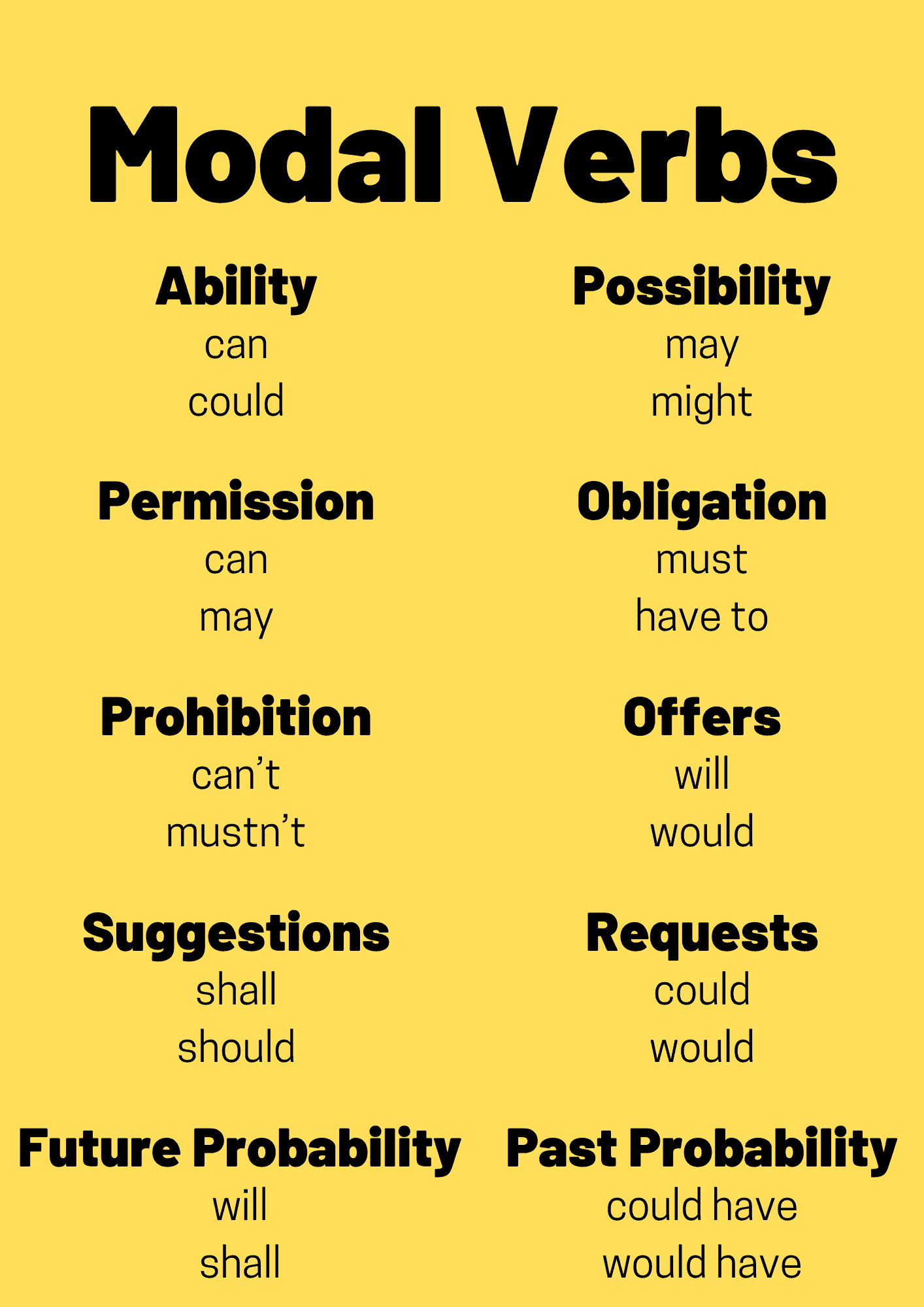Modal verbs, also known as modal auxiliaries, are a special category of verbs that are used to express various degrees of necessity, possibility, permission, or ability in a sentence. They play a crucial role in shaping the meaning of a sentence and are often used in conjunction with other verbs to convey a specific message or tone.
Understanding modal verbs is essential for mastering the nuances of a language and enhancing your communication skills. In English, there are several modal verbs that are commonly used in everyday conversations and writing. Let’s explore some of the most common modal verbs and their meanings.
List of Modal Verbs
1. Can – expresses ability or possibility
2. Could – expresses past ability or polite permission
3. May – expresses permission or possibility
4. Might – expresses possibility or uncertainty
5. Must – expresses necessity or strong obligation
6. Shall – expresses future intention or offer
7. Should – expresses advice or obligation
8. Will – expresses future prediction or promise
9. Would – expresses polite requests or hypothetical situations
Modal verbs are versatile and can be used in various contexts to convey different meanings. They add depth and complexity to your language skills, allowing you to express yourself more effectively and accurately.
When using modal verbs, it is important to pay attention to their nuances and understand the appropriate contexts in which they should be used. Practice using modal verbs in different sentences and scenarios to become more proficient in their usage.
In conclusion, mastering the list of modal verbs is essential for improving your language proficiency and communication skills. By understanding the meanings and usage of modal verbs, you can enhance the clarity and effectiveness of your communication. So, practice using modal verbs in your everyday conversations and writing to become a more confident and articulate communicator.
